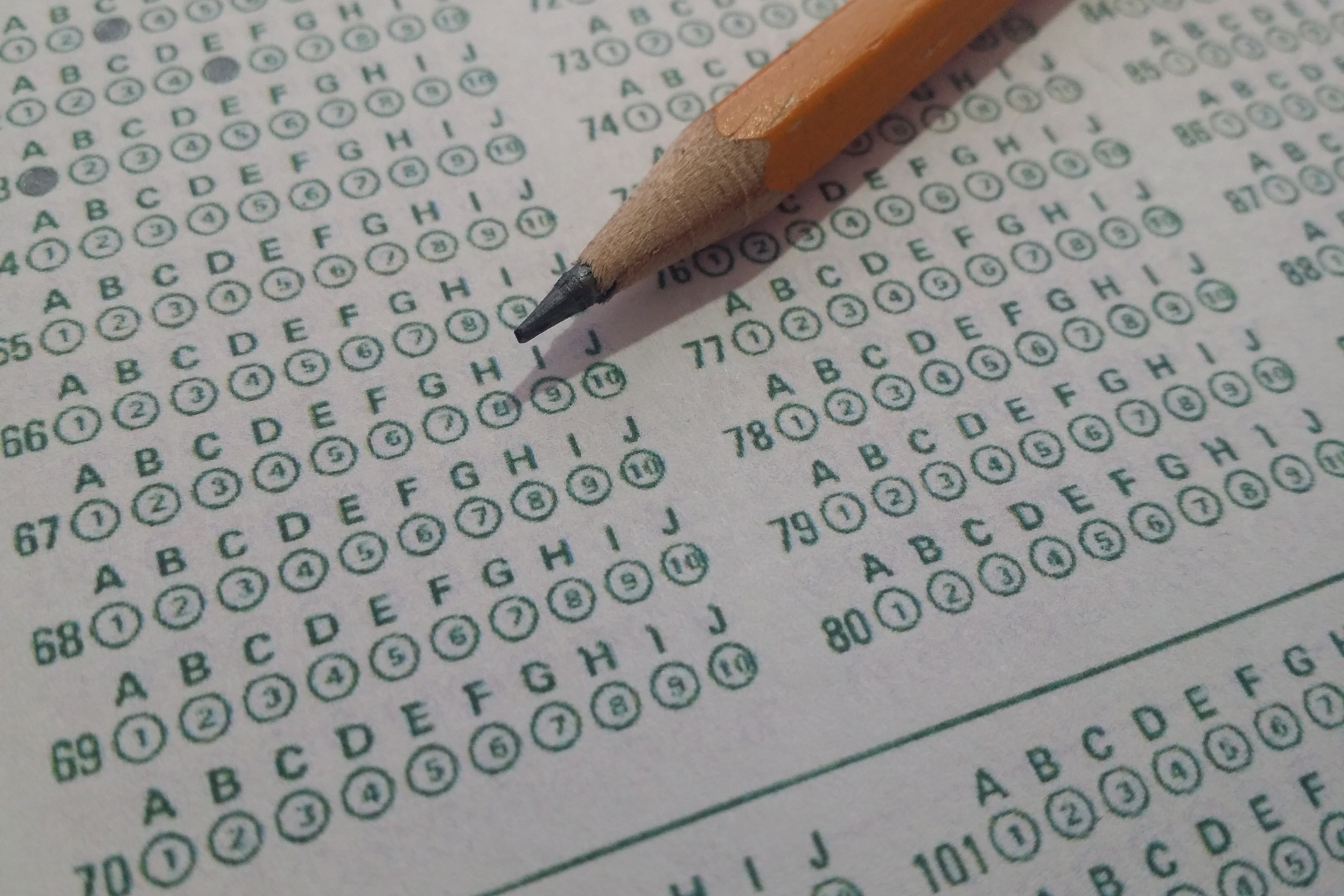
Table of Contents
If you're preparing to take the MCAT, you're likely aware of the importance of doing well on the physics section. MCAT physics, like all the other sections of the exam, can be challenging and require dedicated study and practice. However, with the right strategies and tools, you can master the material and achieve your best possible score.
MCAT Physics Overview: What to Expect on the Exam
The MCAT physics section consists of 59 multiple-choice questions that cover a range of physics topics. The questions are designed to test your knowledge and understanding of physics concepts, as well as your ability to apply these concepts to real-world situations. Some of the topics covered on the MCAT physics section include mechanics, thermodynamics, electricity and magnetism, waves, and optics.
It is important to note that the MCAT physics section also includes questions that require you to interpret graphs, tables, and diagrams. These questions may ask you to analyze experimental data or to identify patterns and trends in scientific information. Therefore, it is essential to have strong analytical and critical thinking skills in addition to a solid understanding of physics concepts.
Preparing for the MCAT physics section requires a combination of content review and practice questions. It is recommended to use a variety of study materials, such as textbooks, online resources, and practice exams, to ensure a comprehensive understanding of the topics covered on the exam. Additionally, it is important to develop effective test-taking strategies, such as time management and process of elimination, to maximize your score on the MCAT physics section.
Understanding MCAT Physics Concepts and Principles
One of the key strategies for mastering MCAT physics is to develop a deep understanding of the core concepts and principles. This includes understanding the formulas, equations, and laws that underpin each topic area, as well as mastering the terminology and notation used in physics. Additionally, it's important to develop a strong foundation in mathematics and be comfortable with the use of calculus, algebra, and trigonometry.
Another important aspect of understanding MCAT physics concepts and principles is to be able to apply them to real-world scenarios. This involves being able to analyze and interpret data, as well as being able to make connections between different physics concepts. It's also important to have a strong grasp of experimental design and methodology, as many MCAT physics questions will involve experimental scenarios.
Top Tips for Effective MCAT Physics Study Sessions
Effective study sessions are critical to achieving success on the MCAT physics section. One strategy is to break each topic area down into smaller, digestible chunks and focus on mastering each one before moving on to the next. Additionally, try to incorporate a range of study techniques into your routine, such as reading textbooks, watching educational videos, working through practice problems, and discussing difficult concepts with peers or tutors.
Another important tip for effective MCAT physics study sessions is to regularly review and reinforce previously learned material. This can be done through regular practice quizzes or flashcards, which can help solidify your understanding of key concepts and formulas. It's also important to take breaks and give your brain time to rest and recharge, as studying for long periods of time without breaks can lead to burnout and decreased retention of information. By incorporating these strategies into your study routine, you can improve your chances of success on the MCAT physics section.
The Importance of Practice Tests for MCAT Physics Preparation
Practice tests are another critical component of MCAT physics preparation. These tests allow you to assess your current knowledge and identify areas where you need to improve. Additionally, they can help you become more comfortable with the format and timing of the MCAT exam, which is crucial for managing your time effectively on test day.
Moreover, practice tests can also help you build your confidence and reduce test anxiety. By taking multiple practice tests, you can become more familiar with the types of questions that will be asked on the MCAT physics section, and develop strategies for answering them efficiently and accurately. This can help you feel more prepared and less stressed on test day.
Finally, practice tests can provide valuable feedback on your progress and help you track your improvement over time. By reviewing your test results and identifying areas where you need to focus your study efforts, you can create a more targeted and effective study plan. This can ultimately lead to a higher score on the MCAT physics section and improve your chances of getting into the medical school of your choice.
Common Mistakes to Avoid in MCAT Physics Exam
There are several common mistakes that students make when taking the MCAT physics exam. One of these is not reading the questions thoroughly enough, which can lead to errors in interpreting what is being asked. Another mistake is not showing your work or assumptions, which can make it difficult for graders to understand your thought process and assess your knowledge accurately.
Additionally, another common mistake is not managing your time effectively during the exam. It is important to pace yourself and allocate enough time for each question, as well as leaving some time at the end to review your answers. Another mistake is not practicing enough with sample questions and exams, which can lead to unfamiliarity with the format and types of questions asked on the MCAT physics exam. It is recommended to practice regularly and simulate exam conditions to improve your performance and reduce the likelihood of making these common mistakes.
How to Best Manage Your Time During the MCAT Physics Section
Time management is a critical factor in achieving success on the MCAT physics section. One effective strategy is to set a time limit for each question and try to stick to it, while also allowing some time for review at the end of the section. Additionally, prioritize the questions based on your strengths and weaknesses, and try to tackle the easier ones first.
Another useful tip for managing your time during the MCAT physics section is to avoid getting stuck on difficult questions. If you find yourself spending too much time on a particular question, it may be best to move on and come back to it later. This will ensure that you have enough time to answer all the questions and maximize your score.
Essential Tools and Resources for MCAT Physics Success
There are several essential tools and resources that can aid you in your MCAT physics preparation. These include textbooks, online tutorials, study guides, and practice exams. Additionally, consider working with a tutor or study group to get personalized feedback and instruction.
One important tool for MCAT physics success is a calculator. Make sure to choose a calculator that is allowed on the exam and practice using it during your preparation. Another helpful resource is physics simulations, which can provide a visual representation of complex concepts and help you better understand them.
It's also important to stay up-to-date with current events and advancements in physics. Reading scientific journals and attending physics conferences can help you stay informed and deepen your understanding of the subject matter. Finally, don't forget to take breaks and prioritize self-care during your preparation to avoid burnout and maintain focus.
Advanced Techniques for Tackling Complex MCAT Physics Problems
Complex physics problems can be daunting, but there are several advanced techniques that can help you tackle them effectively. These include breaking down the problem into smaller steps, using diagramming and visualization techniques, and making educated guesses based on your knowledge and assumptions.
Another useful technique for tackling complex MCAT physics problems is to identify and apply relevant formulas and equations. This requires a strong understanding of the underlying concepts and principles, as well as the ability to recognize which formulas are applicable to a given problem. Additionally, practicing with a variety of physics problems can help you develop a deeper understanding of the subject and improve your problem-solving skills.
How to Build Confidence and Reduce Test Anxiety on MCAT Exam Day
Test anxiety is a common issue among students taking the MCAT exam. To reduce anxiety and build confidence, try to get a good night's sleep before the exam, eat a healthy breakfast, and arrive at the testing center early to allow plenty of time for check-in. Additionally, take a few deep breaths and remind yourself of your preparation and abilities before beginning the exam.
By following these expert strategies and utilizing the tools and resources available to you, you can master MCAT physics and achieve your best possible score on test day. With dedication, practice, and confidence, you can take on even the most challenging physics problems and come out on top.
Another effective way to reduce test anxiety is to practice relaxation techniques, such as meditation or yoga, in the days leading up to the exam. These techniques can help calm your mind and reduce stress levels, allowing you to approach the exam with a clear and focused mindset.
It's also important to remember that the MCAT exam is just one part of your overall application to medical school. While a good score is certainly important, it's not the only factor that admissions committees consider. So, try to keep things in perspective and focus on doing your best, rather than getting a perfect score.
Browse hundreds of expert coaches
Leland coaches have helped thousands of people achieve their goals. A dedicated mentor can make all the difference.











